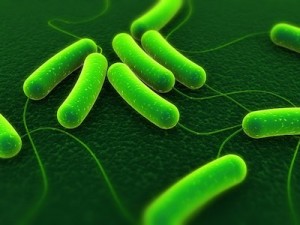An unnamed restaurant in Spartanburg, South Carolina is the suspected source of an outbreak of shiga toxin-producing E. coli. At least eleven people are ill. Of that group, two people have developed hemolytic uremic syndrome.
 Adam Myrick, Public Information Officer of the South Carolina Department of Health and Environmental Control, told Food Poisoning Bulletin that he was not aware of any hospitalizations in the outbreak. He also said that the department does not discuss individual cases. All he would say about the restaurant is that it is a Mexican restaurant in the Spartanburg area, although there have been calls for the restaurant to be identified.
Adam Myrick, Public Information Officer of the South Carolina Department of Health and Environmental Control, told Food Poisoning Bulletin that he was not aware of any hospitalizations in the outbreak. He also said that the department does not discuss individual cases. All he would say about the restaurant is that it is a Mexican restaurant in the Spartanburg area, although there have been calls for the restaurant to be identified.
Hemolytic uremic syndrome (HUS) is a severe complication of a Shiga toxin–producing Escherichia coli (generally E. coli O157) infection. It is characterized by hemolytic anemia, thrombocytopenia, and kidney failure, and most HUS victims suffer a host of other medical problems. E. coli-HUS is the most common cause of acute renal failure among young children (5 years and less) in the United States.
These are 10 things you should know if your child has an E. coli infection or has been diagnosed with HUS:
- When your child is diagnosed with E. coli and/or HUS, you should contact your local health department immediately because additional testing needs to be done to determine if your child’s case of E. coli-HUS is part of an outbreak of illnesses. This is important because you may be able to provide information to health officials that helps them find the source of the outbreak.
- You should not throw away food you have that you suspect is the source of your child’s E. coli infection. The food may need to be tested for the presence of E. coli bacteria and may be the “smoking gun” that determines the source of the outbreak.
- The food eaten immediately before onset of illness is generally not the cause of the illness because the incubation period for E. coli is from 3 to 10 days.
- Because of the long incubation period, finding the source of an outbreak of E. coli-HUS can be difficult. During that time, the contaminated food responsible for the illnesses may have been eaten or thrown out. Even if a specific food source is not found, the outbreak investigation may lead to a legally responsible party, such as a restaurant.
- Quickly finding the source of an E. coli-HUS outbreak can help prevent additional illnesses.
- The CDC recommends that antibiotics not be used for E. coli infections because these medications increase the risk of developing HUS. You should make sure your doctor is aware of this.
- Medical research and better understanding of HUS by medical professionals has improved care for HUS patients, lowering the mortality rate. Even if your child is extremely ill, he or she will most likely survive.
- HUS may result in major long-term complications, including chronic renal failure, neurologic dysfunction, and hypertension.
- Even if your child appears to have recovered, he or she is at greater risk of developing kidney problems in the future, including renal failure, and may need a kidney transplant.
It should be noted that a closely related illness, thrombotic thrombocytopenic purpura (TTP), is also caused by infection with Shiga-toxin producing E. coli (generally E. coli O157). In adults, the diagnosis for E. coli victims with kidney failure is often TTP-HUS and often involves neurological problems, including stroke, that result in permanent brain damage.

If you or a loved one have been sickened with an E. coli O157:H7 infection or HUS, please contact our experienced attorneys for help at 1-888-377-8900. Our team has represented many HUS patients in successful lawsuits throughout the country.




